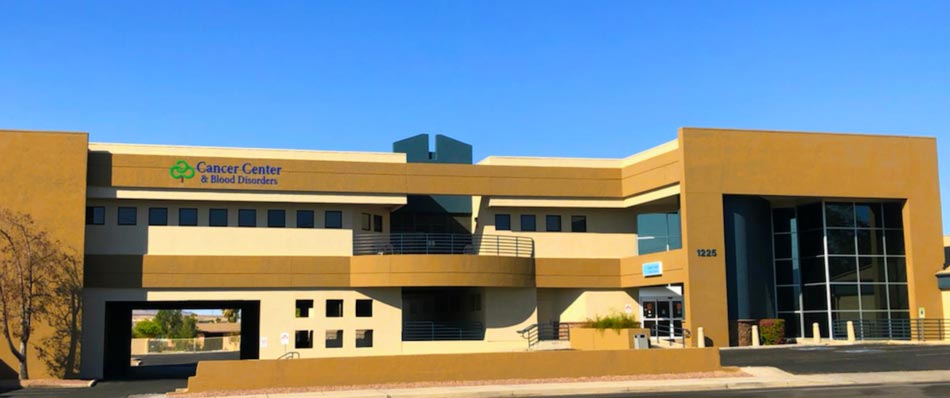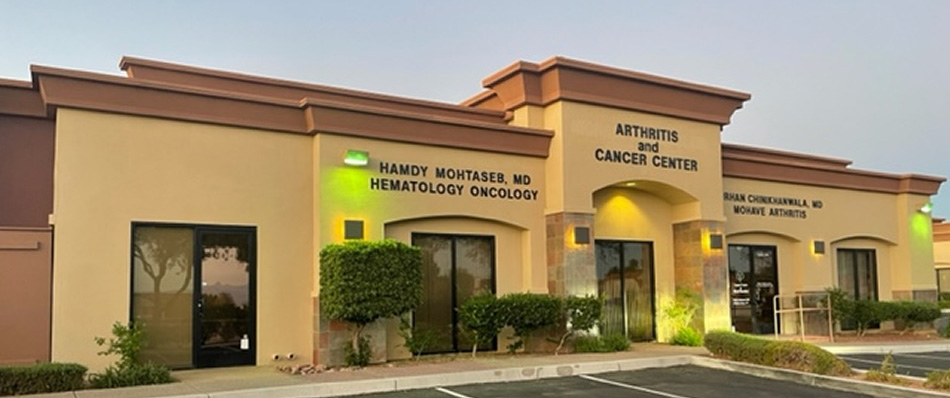| Monday: | 8:30 AM - 5:00 PM |
| Tuesday: | 8:30 AM - 5:00 PM |
| Wednesday: | 8:30 AM - 5:00 PM |
| Thursday: | 8:30 AM - 5:00 PM |
| Friday: | 8:30 AM - 12:30 PM |
| Saturday: | Closed |
| Sunday: | Closed |
-
Genetic Risk Evaluation & Testing for Cancer in Henderson, NV
Many people have a family member who has had cancer. While most cancer happens by chance, about 5-10% of cancers are hereditary. Hereditary cancers are caused by a harmful variant in a gene that runs in families and may be passed down from parents to children, causing a higher risk for cancer. “Hereditary cancers” may also be called “inherited cancer,” or they may be associated with specific genetic syndromes or “familial cancer syndromes.” If you have a strong history of cancer in your family, ask your healthcare provider about you may wish to consider a genetic risk evaluation. Learning if you have inherited a harmful variant in a cancer gene can help you take steps for early detection and cancer prevention.
Why are Some Cancers Inherited?
All cancers are caused by harmful changes, or variants (also called mutations), in genes. Genes are like blueprints or instructions our body uses to grow and function. Cancer genes work to protect our bodies from developing cancer. When a cancer gene contains a harmful variant, the gene cannot function correctly and does not protect against cancer as well as it should; this leads to a higher risk for cancer. Usually these harmful variants are acquired over the course of a person’s life. However, sometimes a harmful variant can be inherited from one or both parents. These inherited variants increase the chance of developing certain cancers, often at a younger age than expected, and they can be passed down to the next generations of a family.
Factors Associated with Hereditary Cancer
- Multiple cancers in one person
- Cancer diagnosed at a young age
- Multiple family members with the same type of cancer
- Cancer in multiple generations
- Family member with a harmful variant in any cancer gene
- Rare cancers or cancers in the less affected gender (e.g., male breast cancer)
- Cancer in paired organs (e.g., both breasts, both ovaries, both kidneys)
- More than one childhood cancer in siblings
What to Expect During a Genetic Risk Evaluation?
- Medical History: A detailed review of your personal medical and family history. This information helps determine your risk of developing cancer, appropriate medical management, and if genetic testing would be useful to help clarify your cancer risk.
- Counseling: Before having genetic testing, you should be counseled about the risks, benefits, and limitations of genetic testing and cancer risk assessments, to help you make an informed decision about whether or not testing is the right choice for you. After testing, counseling should include a review of your test results and what they mean for you and your family.
- Testing: Genetic testing looks at a set of your genes (usually through a blood sample) to see if you have any harmful variants that increase your risk for cancer. Insurance companies usually cover the cost of testing if you have a personal or family history that is concerning for hereditary cancer. Cost and insurance coverage for testing are discussed during your evaluation.
- Next Steps: Based on whether or not you have genetic testing and what the results show, you may have different options for cancer screenings and prevention, or even tailored cancer treatments.
- Family Risk: If a harmful variant is found in a family, other family members are encouraged to consider genetic testing as well. The information from genetic counseling and testing helps family members make decisions that could prevent cancer and save their lives. This information can also be reassuring to those who do not have the harmful variant found in their family.
What are the Benefits of Genetic Testing?
- Relief from uncertainty
- Understand your cancer risk
- Make informed medical and lifestyle decisions
- Provide helpful information for relatives
-
Related Information
- Consultations
- Bone Marrow Biopsy
- Chemotherapy
- Immunotherapy
- Targeted Thearpy
- Cancer Research & Clinical Trials
- Patient Education & Services
- Genetic Risk Evaluation & Testing
- Infusion Suite
- Laboratory
- Dispensing Pharmacy
- Pain Management
- Precision Medicine
- Biologic Therapy
- Family Support
- Financial Assistance



